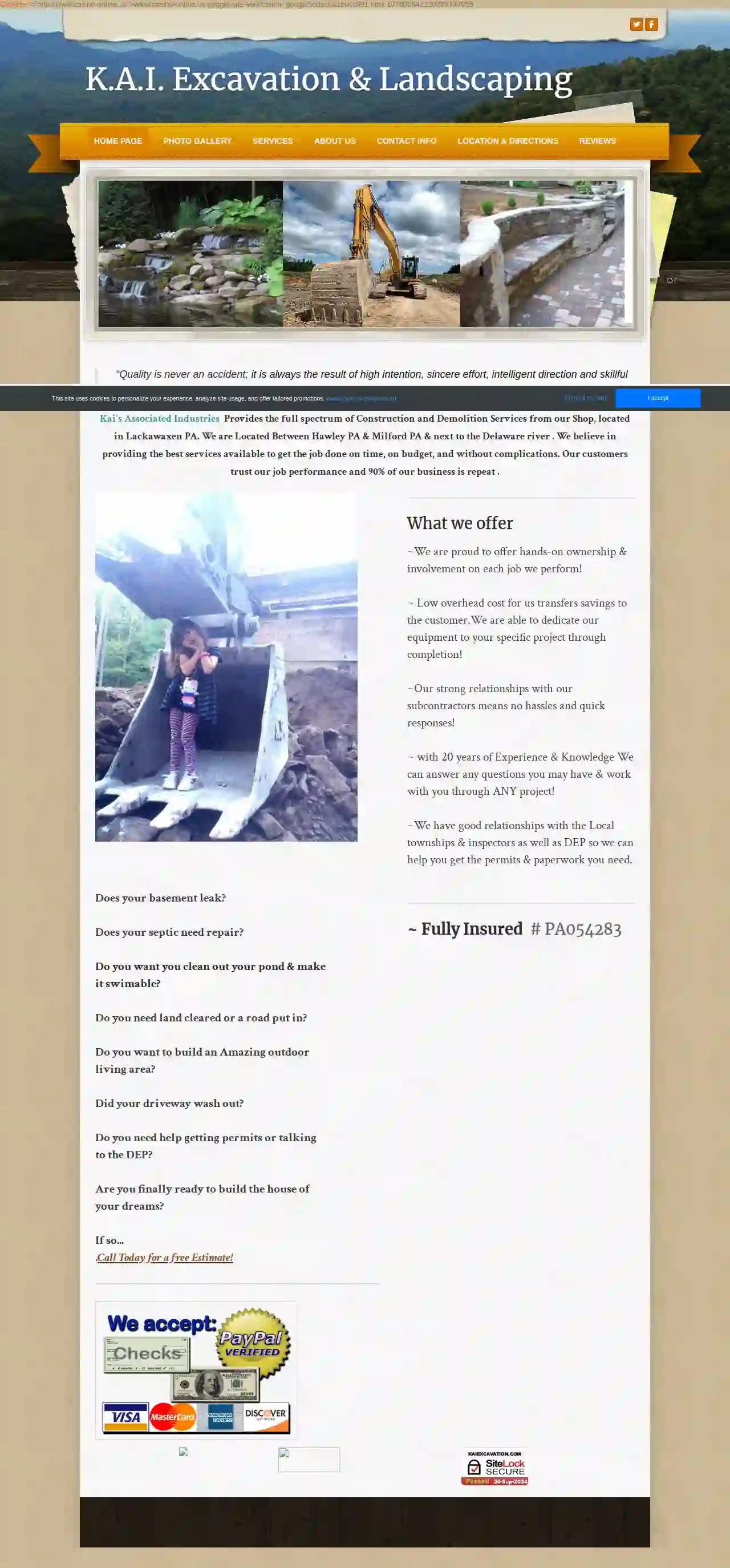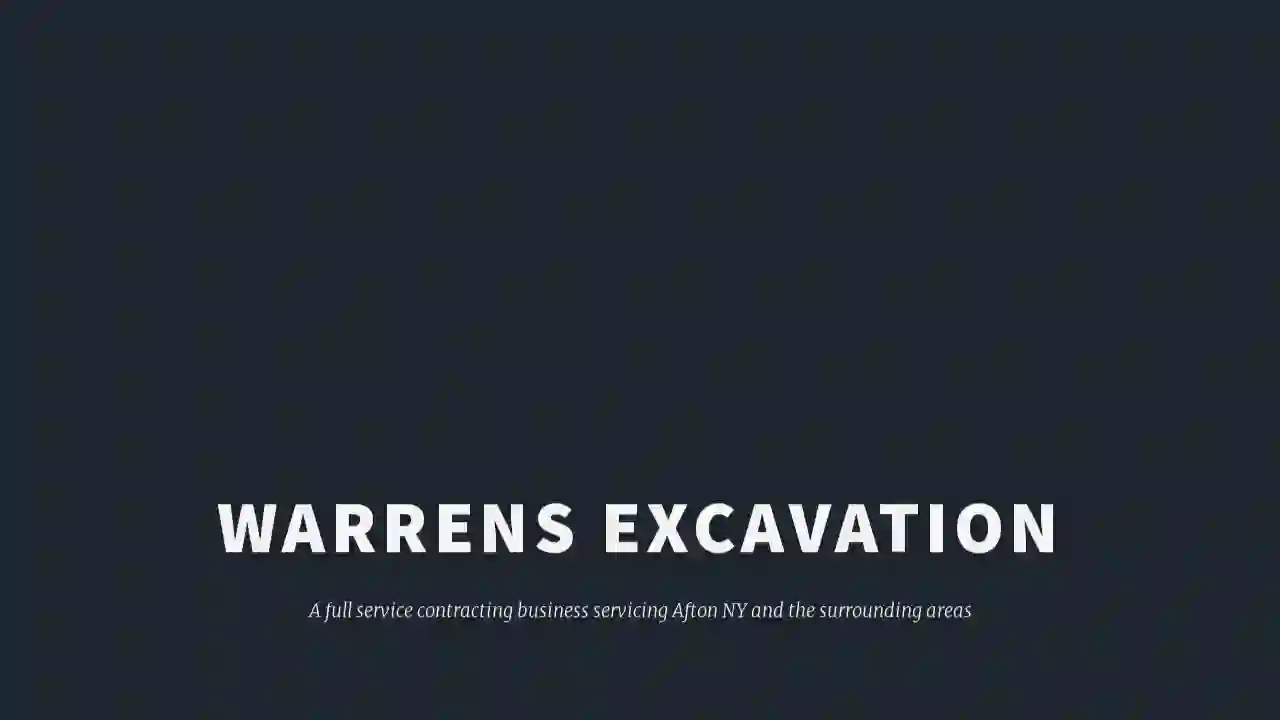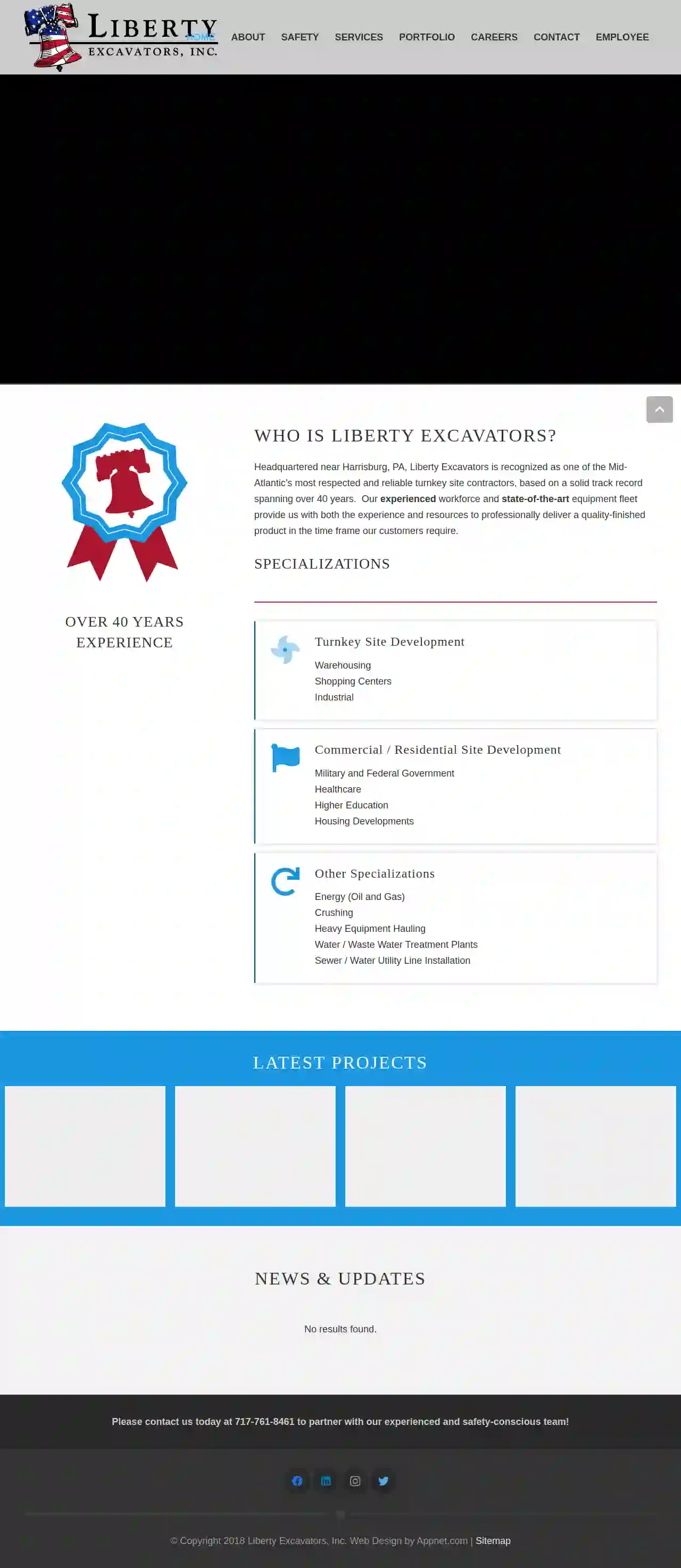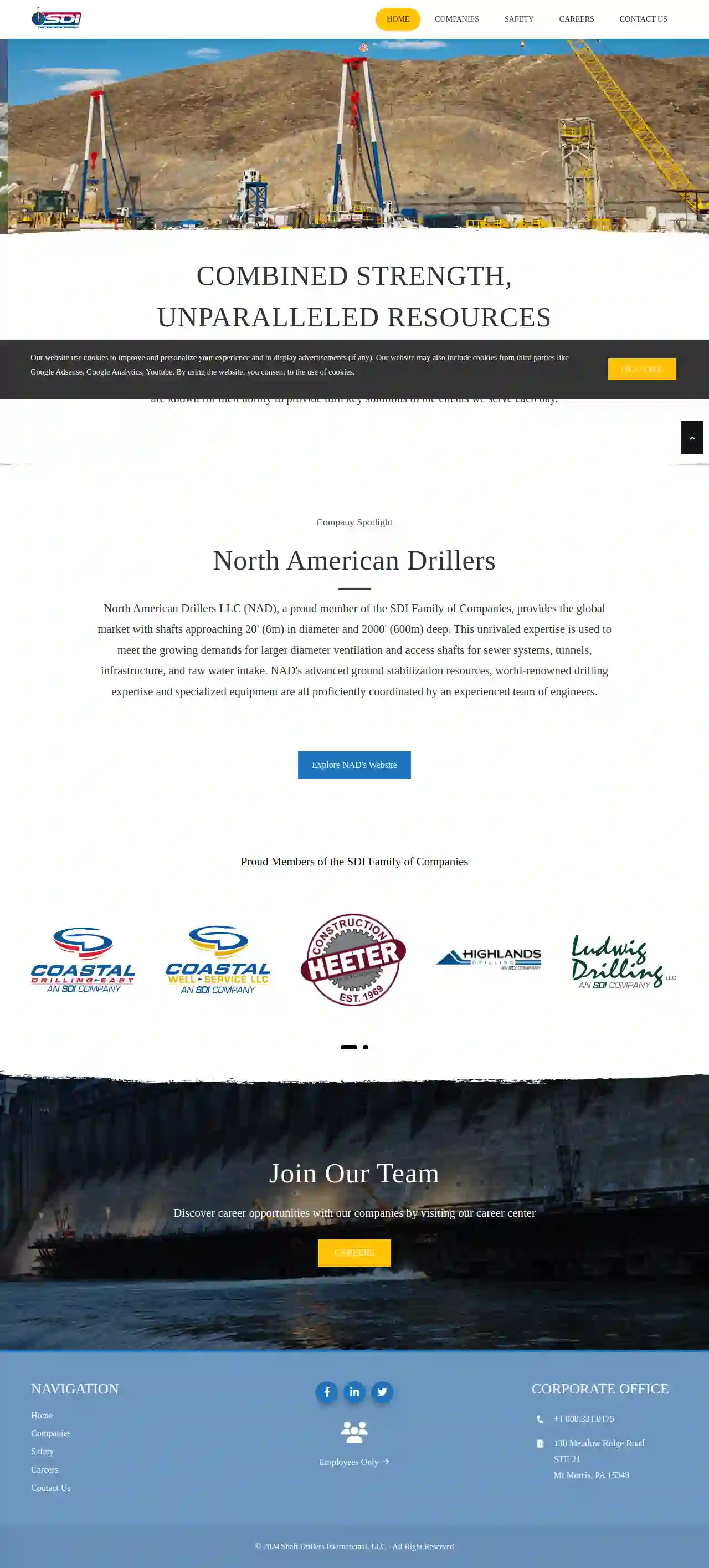Demolition Contractors West Mifflin
Top 10 Demolition Contractors in West Mifflin
Get up to 3 Demolition Services quotes for your project today! Compare profiles, reviews, accreditations, portfolio, etc... and choose the best service.

Staten Island Masonry- Staten Island Masonry Contractors
518 reviewsYork, USStaten Island Masonry Serving Staten Island and surrounding areas Staten Island Masonry and Concrete is the premier choice for masonry and concrete services in Staten Island. Our team of experienced masonry contractors specialize in a variety of services, including brick laying, block laying, and concrete work. We have been providing superior quality masonry and concrete services to Staten Island and the surrounding areas for over 20 years. We are committed to providing outstanding customer service and craftsmanship on every project. Our team is dedicated to providing the highest quality standard of work and strive to exceed our customers’ expectations. We take the time to understand your project and provide a tailored solution that meets your needs.
- Services
- Why Us?
- Testimonials
- Gallery
Get Quote
K.A.I. Excavation & Landscaping
4.423 reviewsLackawaxen, USAbout Kai Wicksnes /Owner Operator When did you start your business? I started working in the landscaping /Excavation field right out of High School in 1995. I worked with Heavy Equipment since I was old enough to reach the lever's & Petals. My Best Friend Growing up had a Father in the Excavation business and I learned a lot from him at a very young age. I also came from a long line of hard working men with good work ethics. My dad taught me that learning new trades and learning about the Land was crucial to being a well rounded man. I had a natural proclivity and passion for Excavating & Landscaping since I was a young boy. Before I had my drivers licence neighbors would see me driving my bike with a cart behind it carrying a lawn mower, gas & a rake in tow. Soon I had a small business in the neighborhood and it has grown into what it is today. I have always loved seeing the end result of my work. It gives me great pride to take an area so rough & tumble & make a beautiful waterfall with a pond with free land to run on. What makes you different than other similar businesses in your community? I live in the area that I work ,so I do the best work possible to keep my clients(who are usually my neighbors) happy. I like to drive past a job I did and see kids running in the lawn I created or people sitting around a stone fireplace I built. It is very important to me to continue building a top notch business for my children to someday run. I want Kai's Associated Industries to be known for our great customer service & excellent work. I also have a lot of my own land so I get the majority of my materials right from my property. I am able to REUSE a lot of resources such as tree stumps which we bury until they biodegrade back into the soil. Being very cautious with any land & it's animals, I consider all option's while clearing a large portion of forest. We are a small family business with a big presence With over 20 years of experience & am very knowledgeable about what I do. I am now building a family who is also into landscaping & excavating. From creating landscapes, to operating machinery, to advertising, and book work. I am looking forward to my children working with me & continuing the well established business I poured my heart and soul into. I am a firm Believer that a Family that works together, Stays together . I look forward to see
- Services
- Why Us?
- Gallery
Get Quote
Warren's Excavation & Stone
51 reviews10000 10th Line, Tavistock, N0L 1P0, USWarren's Excavating: Your Trusted Partner for Excavation Services Warren's Excavating is a family-owned and operated business with over 20 years of experience in the excavation industry. We are committed to providing our clients with high-quality, reliable, and affordable services. Our team of experienced professionals is dedicated to exceeding your expectations and delivering exceptional results. We understand that every project is unique, and we take the time to listen to your needs and develop a customized plan that meets your specific requirements. Whether you're looking for site preparation, foundation excavation, utility installation, or any other excavation service, we have the expertise and equipment to get the job done right. At Warren's Excavating, we pride ourselves on our commitment to safety, quality, and customer satisfaction. We use only the latest equipment and techniques to ensure that your project is completed on time and within budget. We also offer free estimates and competitive pricing. Contact us today to learn more about our services and how we can help you with your next excavation project.
- Services
- Why Us?
Get Quote
Liberty Excavators Inc
3.123 reviewsHarrisburg, USWho is Liberty Excavators? Headquartered near Harrisburg, PA, Liberty Excavators is recognized as one of the Mid-Atlantic’s most respected and reliable turnkey site contractors, based on a solid track record spanning over 40 years. Our experienced workforce and state-of-the-art equipment fleet provide us with both the experience and resources to professionally deliver a quality-finished product in the time frame our customers require. Specializations Liberty Excavators specializes in a wide range of projects, including: Turnkey Site Development Warehousing Shopping Centers Industrial Commercial / Residential Site Development Military and Federal Government Healthcare Higher Education Housing Developments Energy (Oil and Gas) Crushing Heavy Equipment Hauling Water / Waste Water Treatment Plants Sewer / Water Utility Line Installation
- Services
- Why Us?
- Gallery
Get Quote
Kuharchik Construction
4.428 reviews420 Schooley Ave, Exeter, 18643, USWE ARE KUHARCHIK CONSTRUCTION. Providing superior electrical contracting services throughout Pennsylvania since 1973. We’re local, we’re family owned, we’re union! Kuharchik is your first choice in Electrical Contracting. From Highway Signing & Lighting to Foundation Installation, we take pride in every job that we do.
- Services
- Why Us?
- Gallery
Get Quote
Mundis Excavating
53 reviews80 Manor Road, 80 MANOR ROAD, Red Lion, 17356, USAbout Us Red Lion local, Bob (Bobby) Mundis is the owner-operator of Mundis Excavating. Bob is the third generation excavator. He has 20+ years of experience in heavy equipment operation. Bob started his career as an operator for his father, Jay E. Mundis Excavating. He then moved on to become a project coordinator and later an estimator for a commercial contractor in Baltimore, MD. Bob oversaw projects in such institutions as NASA, Johns Hopkins University, and Johns Hopkins Hospital. In 2018, Bob decided to open his own excavating company in his home town of Red Lion. Maria Mundis Wife of Bob Mundis, Maria is the Controller of Mundis Excavating. Before graduating from Penn State University with Bachelor's of Science in Electro-Mechanical Engineering, Maria gained some work experience in banking industry. After completing an internship at Johnson Controls, Inc., Maria chose to become a stay-at-home mom to her and Bob's two children, later to begin helping Bob with his business. Family Owned Small Business Mundis Excavating was established in 2018 as a dream of one family to use our talents for honest service to others. Our company motto is: "A just scale and a fair measure." Our continuous goal is to work tirelessly in order to provide our customers with the best service and quality of work at affordable prices. We hope to continue growing our company in the years to come. Our Promise We are committed to providing honest and prompt service. The integrity of our business is our priority.
- Services
- Why Us?
- Our Team
- Gallery
Get Quote
RR Plumbing Roto-Rooter
4.8978 reviewsStaten Island, USStaten Island Plumbers Near You Plumbing & Drain Solutions: Licensed Staten Island Plumber Providing 24/7 Emergency Plumbing and Drain Services If you are currently looking for a reputable plumber in Staten Island that can meet your plumbing needs quickly and correctly the first time, then look no further. For over 85 years, RR Plumbing Roto-Rooter has been skillfully meeting the plumbing and drain cleaning needs of homes and businesses throughout the entire Staten Island, NY area. Our licensed and insured plumbers can handle commercial, residential, and emergency plumbing and drain cleaning needs of all sizes and complexities, including toilet repairs, blocked sinks, clogged shower drain repairs, sump pump replacements, and water heater installations. Our affordable plumbing services are also available 24/7 so that you do not have to wait to get the solutions you need.
- Services
- Why Us?
- Testimonials
- Gallery
Get Quote
Blue Top Construction Inc. - Excavating Contractor, Erosion Control, Waterway Construction
51 reviewsOffice located in Champaign County IL, Champaign, USBlue Top Construction Inc. - Your Trusted Partner for Land Improvement Blue Top Construction Inc. is a locally owned and operated company with a rich history in the construction industry. We've been serving the Champaign County, IL area since 2005, providing reliable and experienced services to both residential and commercial clients. Our team is dedicated to delivering measurable value to your project benchmarks, ensuring your satisfaction is always our top priority. We understand that land improvement projects can be complex and require a skilled and experienced team. That's why we offer a comprehensive range of services, including: Excavating Grading Demolition Building site preparation Erosion repair Drainage solutions Material placement Seeding Tree removal Whether you need help with a new building site, waterway, surface drain, open ditch, or pond, we have the expertise and equipment to handle your project efficiently and effectively. We are committed to providing you with the highest quality workmanship and exceptional customer service. At Blue Top Construction Inc., we believe in building strong relationships with our clients. We take the time to understand your needs and goals, and we work closely with you throughout the entire project to ensure your complete satisfaction. Contact us today to discuss your land improvement project and let us help you bring your vision to life.
- Services
- Why Us?
- Gallery
Get Quote
USA Asphalt Paving Contractors
4.559 reviews3 N Line Rd, Newtown Square, 19073, USUSA Asphalt Paving Contractors: Your Trusted Paving Partner in Chester and Delaware Counties PA We understand that your driveway, parking lot, or sidewalk can be a source of frustration when they're cracked, faded, or uneven. That's why we're here to provide you with the solutions you need. We're a team of experienced paving contractors in Delaware County and Chester Counties PA, dedicated to delivering high-quality workmanship, competitive pricing, and exceptional customer satisfaction. With over 20 years of experience serving Delaware County, Chester County, Montgomery County, and beyond, we've earned a reputation for excellence. Our commitment to quality and professionalism has been recognized by leading consumer organizations. We're not just a paving contractor; we're your paving partner. We're here to help you with any paving, asphalt, or concrete services you need, making your life easier, your property safer, and your curb appeal higher. Don't settle for less. Why Choose USA Asphalt Paving Contractors? You have options, but not all paving contractors are created equal. Inexperienced contractors, unlicensed professionals, and uninsured companies can cost you time, money, and property. We understand the importance of choosing a reliable and trustworthy partner for your paving needs. At USA Asphalt Paving Contractors, we're experienced, licensed, and insured, with years of industry know-how. We're quality-oriented and competitively priced, ensuring you get the best value for your investment. We're detail-oriented experts who prioritize safety while delivering beautiful results. Don't risk your hard-earned cash on just anyone; trust the best when it comes to asphalt paving. Our Services We're your one-stop shop for all your asphalt, pavement, and concrete needs. We have the expertise and equipment to handle any size project, from small driveways to major roadways. Our comprehensive services include: Asphalt paving for driveways, parking lots, private roads, and more. We'll install, repair, or replace any asphalt surface you have, creating smooth, durable, and attractive surfaces that will last for years. Masonry and brickwork for walls, fireplaces, chimneys, and more. We can build, repair, or restore any masonry or brickwork, adding value and charm to your property. Concrete services for sidewalks, curbs, patios, and more. We'll install, repair, or replace any concrete surface, creating strong, stable, and versatile surfaces for any purpose. We can customize our services to fit your specific needs and preferences. We can also integrate certain services to create a comprehensive package for your project. We'll provide you with our honest assessment and recommendations to ensure you get the best possible results. Choose USA Asphalt Paving Contractors for guaranteed results at a price you can agree with!
- Services
- Why Us?
- Gallery
Get Quote
Shaft Drillers International
4.115 reviews130 Meadow Ridge Road STE 21, Mt Morris, 15349, USCOMBINED STRENGTH, UNPARALLELED RESOURCES The SDI Family of Companies provides the global market with the very best technological innovations and specialized construction solutions. Built on the principles of hard work, integrity and honesty, SDI companies are known for their ability to provide turn key solutions to the clients we serve each day.
- Services
- Why Us?
- Gallery
Get Quote
Over 22,076+ Excavation Companies on our platform
Our excavation pros operate in West Mifflin and surroundings!
ExcavationHQ has curated and vetted the Best Excavation Contractors arround West Mifflin. Find a trustworthy business today.
Frequently Asked Questions About Demolition Contractors
- General Liability Insurance: Covers bodily injury or property damage to third parties caused by the contractor's negligence.
- Workers' Compensation Insurance: Provides benefits to workers injured on the job.
- Pollution Liability Insurance: Covers costs associated with environmental contamination caused by demolition activities.
- Professional Liability Insurance: Protects against claims of negligence or errors in professional services, such as demolition planning or consulting.
- Dust Suppression: Use water spraying, misting systems, or other dust suppression techniques to control airborne particles.
- Noise Barriers: Erect temporary noise barriers around the demolition site to reduce noise transmission to nearby properties.
- Work Schedule: Schedule noisy demolition activities during permitted hours to minimize disturbance to neighbors.
- Communication: Keep neighbors informed about the demolition schedule and any potential disruptions.
What is the importance of insurance in demolition projects?
How long does a demolition project take?
Can I do demolition myself?
How can I minimize the dust and noise from demolition?
What is the importance of insurance in demolition projects?
- General Liability Insurance: Covers bodily injury or property damage to third parties caused by the contractor's negligence.
- Workers' Compensation Insurance: Provides benefits to workers injured on the job.
- Pollution Liability Insurance: Covers costs associated with environmental contamination caused by demolition activities.
- Professional Liability Insurance: Protects against claims of negligence or errors in professional services, such as demolition planning or consulting.
How long does a demolition project take?
Can I do demolition myself?
How can I minimize the dust and noise from demolition?
- Dust Suppression: Use water spraying, misting systems, or other dust suppression techniques to control airborne particles.
- Noise Barriers: Erect temporary noise barriers around the demolition site to reduce noise transmission to nearby properties.
- Work Schedule: Schedule noisy demolition activities during permitted hours to minimize disturbance to neighbors.
- Communication: Keep neighbors informed about the demolition schedule and any potential disruptions.